Discover the transformative power of AI Answer Generator tools in digital communication. Learn how they’re reshaping the way we write, respond, and interact online.
Table of Contents
Introduction to AI Answer Generator
What Are AI Answer Generators?
AI Answer Generator tools use natural language processing (NLP) algorithms to generate automated and thoughtful responses to queries, messages, and emails. They are designed to help professionals save time and streamline their communication by providing fast, consistent, and contextually relevant responses. These generators can be used in various contexts, such as handling customer inquiries, responding to patient concerns, and addressing client requests. AI answer generators can be integrated across diverse messaging platforms, including social media, email, web chat, and mobile apps, allowing for unified and consistent communication across different channels.
The Evolution of AI in Digital Communication
In the realm of digital communication, AI answer generators have emerged as a game-changing technology. These tools, driven by advanced algorithms and natural language processing, offer innovative solutions for writing, responding, and managing digital content. Their impact is evident across various sectors, revolutionizing the way we interact in the digital world.
Overview of Top AI Answer Generators
The digital landscape is teeming with AI answer generators, each designed to cater to different aspects of communication and content creation. Among these, ScribeHow’s AI Answer Generator, HyperWrite AI, and Rytr stand out for their unique functionalities and user-friendly interfaces. Let’s delve deeper into what each of these tools offers.
ScribeHow’s AI Answer Generator
ScribeHow‘s AI answer generator is a remarkable tool designed to transform complex queries into straightforward, concise answers. It leverages advanced algorithms to parse through extensive information, extracting the essence of a query to provide clear and accurate responses. This feature is particularly beneficial in educational and professional settings, where time is of the essence and clarity is paramount. The ability of this tool to dissect intricate questions and present simplified answers makes it a valuable asset for researchers, students, and professionals alike, who often grapple with dense material or need quick clarifications.
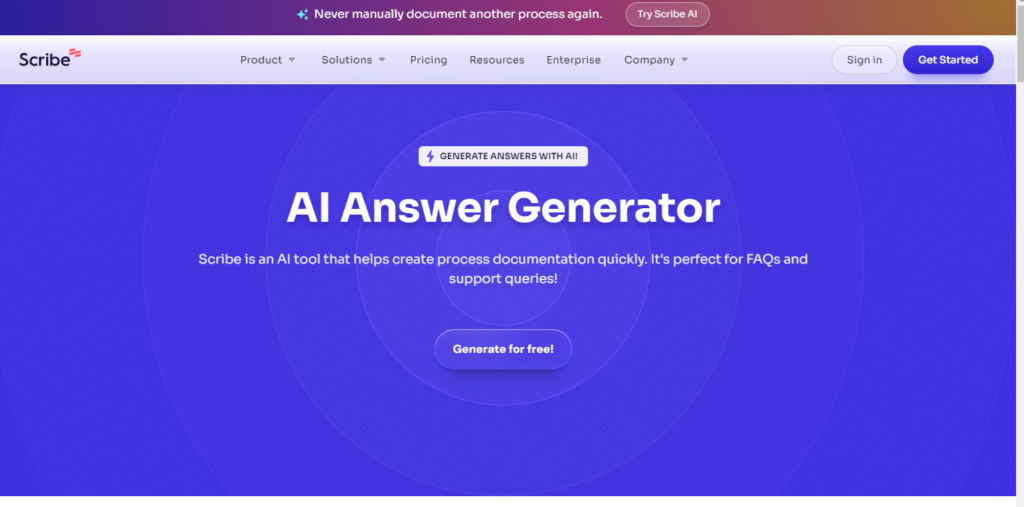
HyperWrite AI: A New Age Writing Assistant
HyperWrite AI emerges as a dynamic writing assistant, aimed at enhancing both creativity and efficiency in the writing process. It’s not just a response generator; it’s an innovative tool that aids in composing emails, reports, articles, and even creative stories. What sets HyperWrite AI apart is its ability to adapt to the user’s writing style, making suggestions and improvements that feel personalized and organic.
This adaptability makes it an excellent tool for writers, marketers, and business professionals who seek to maintain their unique voice while benefiting from AI’s efficiency and creativity boosts. Whether it’s crafting a compelling narrative or composing a persuasive email, HyperWrite AI stands as a reliable and ingenious partner in the writing process.
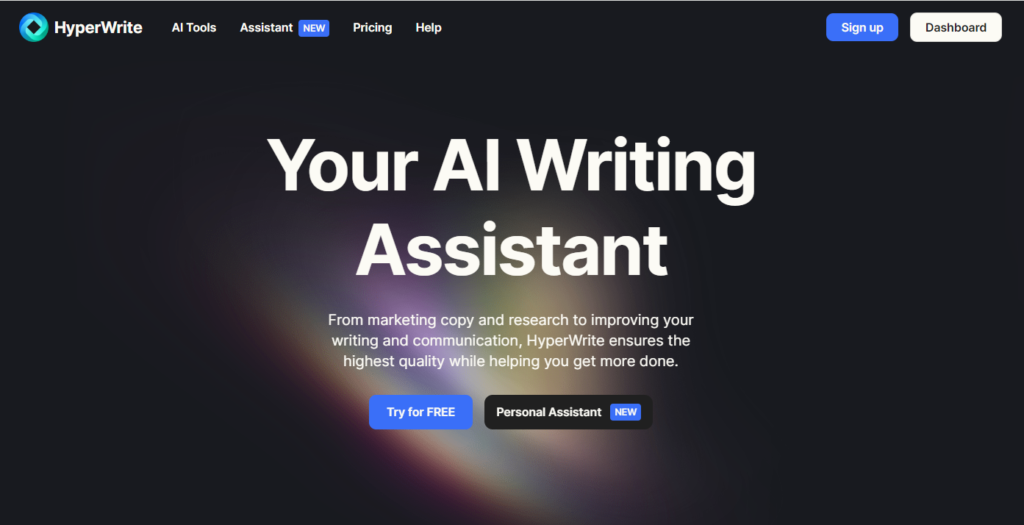
Rytr’s Use Cases in Reply/Response Generation
Rytr specializes in generating quick, relevant, and contextually accurate responses for a variety of use cases. Its strength lies in its versatility – from drafting email replies to creating content for social media or chatbots. Rytr’s AI algorithms are trained to understand the nuances of different communication styles and contexts, making it a go-to tool for businesses looking to maintain consistent and engaging interactions with their customers.
Its application extends to customer support, where it can provide swift and appropriate responses, thereby enhancing customer satisfaction and engagement. Moreover, its ease of use and intuitive interface make it accessible to users with varying levels of technical expertise, democratizing the use of AI in daily communication tasks.

In conclusion, each of these AI answer generators – ScribeHow, HyperWrite AI, and Rytr – brings something unique to the table. ScribeHow excels in simplifying complex information, HyperWrite AI enhances creative writing processes, and Rytr offers versatile solutions for a range of response generation needs. Together, they represent the cutting edge of AI technology in the realm of digital communication, showcasing the potential of AI to transform how we interact, create, and convey information in the digital age.
Innovative Features in AI Response Tools
The realm of AI response tools is constantly evolving, with each tool bringing its own set of innovative features to the table. Coda.io and AI Wizard’s Spellbook are prime examples of how AI can be ingeniously integrated into different facets of digital communication and content creation. Let’s explore the innovative elements that these tools offer.
Coda.io: Merging AI with Document Management
Coda.io stands out for its seamless integration of AI with document management. This tool redefines traditional document handling by embedding AI-driven functionalities directly into the workflow. It enables users to automate repetitive tasks, generate summaries, and even receive content suggestions, all within their documents. This integration significantly enhances productivity, allowing for real-time collaboration and intelligent document editing.
Coda.io’s AI capabilities extend to understanding context within documents, providing users with smart recommendations and insights. This not only streamlines the process of document creation and management but also ensures that the content is dynamic, relevant, and up-to-date. For businesses and teams, this means a more cohesive, efficient, and intelligent approach to handling a wide array of documents.

AI Wizard’s Spellbook for AI Replies
AI Wizard’s Spellbook adds a unique and almost magical touch to AI replies. This tool differentiates itself by offering a range of customizable responses, allowing users to tailor AI-generated content to their specific needs. It’s like having a personal wizard at your disposal, capable of crafting replies that range from professional to whimsical, depending on the user’s preference.
The tool’s versatility makes it suitable for a variety of applications, from customer service interactions to creative writing projects. Users can choose from a plethora of templates and styles, ensuring that the AI-generated responses are not only relevant and accurate but also carry a personalized touch.
AI Wizard’s Spellbook is particularly useful for those who wish to infuse a bit of creativity and personality into their automated responses, making mundane tasks more enjoyable and engaging.
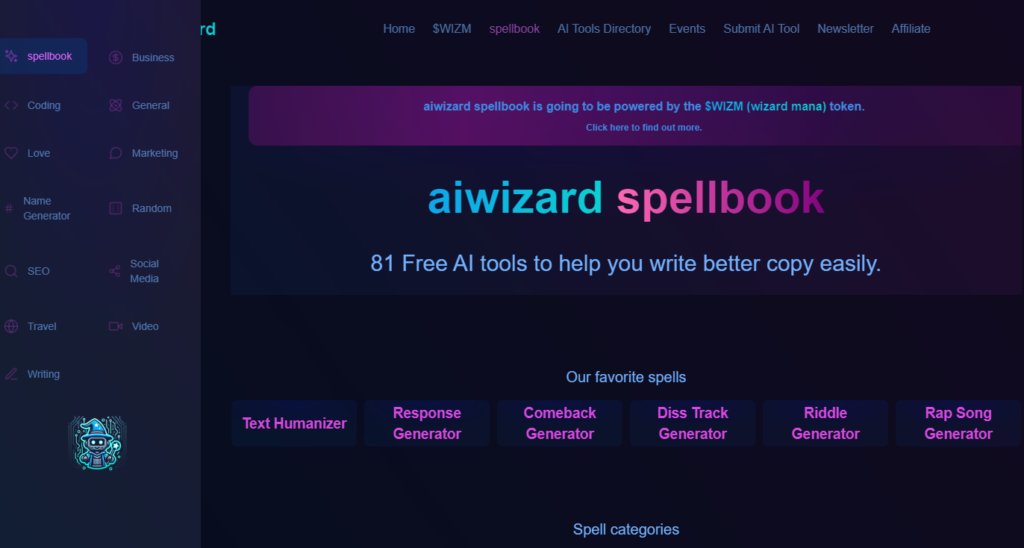
In conclusion, the innovative features of Coda.io and AI Wizard’s Spellbook showcase the diverse potential of AI in enhancing digital tools. From streamlining document management to optimizing content for SEO, and adding a personal touch to AI responses, these tools exemplify the creative and practical applications of AI in today’s digital landscape. Their unique capabilities not only make tasks more efficient but also open up new possibilities for how we interact with and leverage technology in our daily lives.
The Role of AI in Email Communication
The integration of AI in email communication has brought about a paradigm shift, making email interactions quicker, more efficient, and contextually richer.
Tools like Typli.ai, EmailTree AI, and Anakin AI have been at the forefront of this transformation, each contributing unique features that redefine the way we handle emails. Let’s delve into how these tools are enhancing email communication.
Typli.ai: AI-Driven Response Generation
Typli.ai has made a significant mark in the world of email communication with its AI-driven response generation capabilities. This tool excels in crafting responses that are not only rapid but also highly relevant to the context of the email.
Using advanced machine learning algorithms, Typli.ai analyzes the content of an incoming email and generates a suitable reply that maintains the tone and addresses the query or comment effectively. This feature is particularly useful in business environments where timely and appropriate responses are crucial.
By automating the response process, Typli.ai helps save valuable time, allowing users to focus on more strategic tasks. Moreover, its intuitive understanding of language nuances ensures that the responses are not only quick but also maintain a human-like quality, making the interactions more personal and engaging.

EmailTree AI: Transforming Email Composition
EmailTree AI has revolutionized email composition by introducing AI-powered efficiency and intelligence into the process. This tool is designed to automate and optimize various aspects of email writing, from drafting content to managing email workflows.
EmailTree AI uses AI to suggest phrasings, auto-complete sentences, and even generate entire email drafts based on the user’s past writing style and common email templates. This significantly speeds up the email composition process, reducing the time spent on crafting emails and improving overall productivity.
Additionally, EmailTree AI incorporates features for email prioritization and management, helping users to efficiently handle their inbox and respond to important emails promptly. The tool’s ability to transform email composition into a more streamlined and intelligent process marks a significant advancement in digital communication.
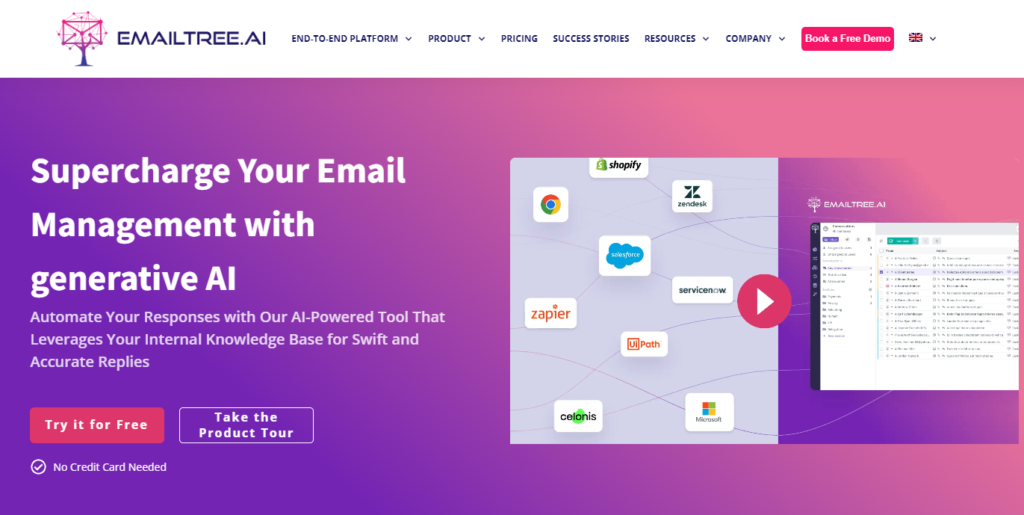
Anakin AI’s Unique Response Generator Features
Anakin AI distinguishes itself with its unique features in response generation, tailored for email communication. What sets Anakin AI apart is its ability to not only generate responses but also to provide insights and actionable suggestions based on the email content.
This tool analyzes the email for key information, tasks, or queries and generates responses that are not just relevant but also include recommendations or next steps. This feature is particularly beneficial for business professionals who deal with a high volume of emails requiring decision-making or action. Anakin AI’s advanced algorithms ensure that the responses are tailored to the specific context of each email, providing a level of personalization that goes beyond standard auto-responses.
This not only enhances the efficiency of email communication but also adds a layer of intelligence and foresight, making email interactions more productive and insightful.

In conclusion, the role of AI in email communication, as exemplified by Typli.ai, EmailTree AI, and Anakin AI, has been transformative. These tools not only facilitate quicker and more relevant responses but also add a level of intelligence and personalization to email interactions. The advancements in AI-driven email communication are a testament to the ongoing evolution of digital technology, making our daily interactions more efficient and meaningful.
AI Integration in Popular Productivity Tools
The integration of AI into popular productivity tools has been a game-changer in the digital workspace. Tools like Notion.so, SuperReply, and Nanonets are leading examples of how AI can significantly enhance productivity, efficiency, and user experience. Let’s explore the unique ways in which these tools leverage AI to transform everyday tasks.
Notion.so: Incorporating AI for Enhanced Productivity
Notion.so is a widely-used productivity tool that has recently incorporated AI to elevate its functionality. This AI integration is designed to enhance user productivity by automating routine tasks and offering intelligent suggestions.
Notion.so’s AI features include smart content organization, where the tool can automatically categorize and prioritize notes and tasks based on user behavior and preferences. Additionally, it offers AI-driven search capabilities that make finding specific information within notes and documents faster and more intuitive.
The AI component also assists in generating templates and outlines based on user input, streamlining the process of creating new documents or project plans. This integration of AI into Notion.so transforms it from a mere note-taking and organizational tool into a dynamic workspace assistant, helping users manage their tasks and information more effectively.
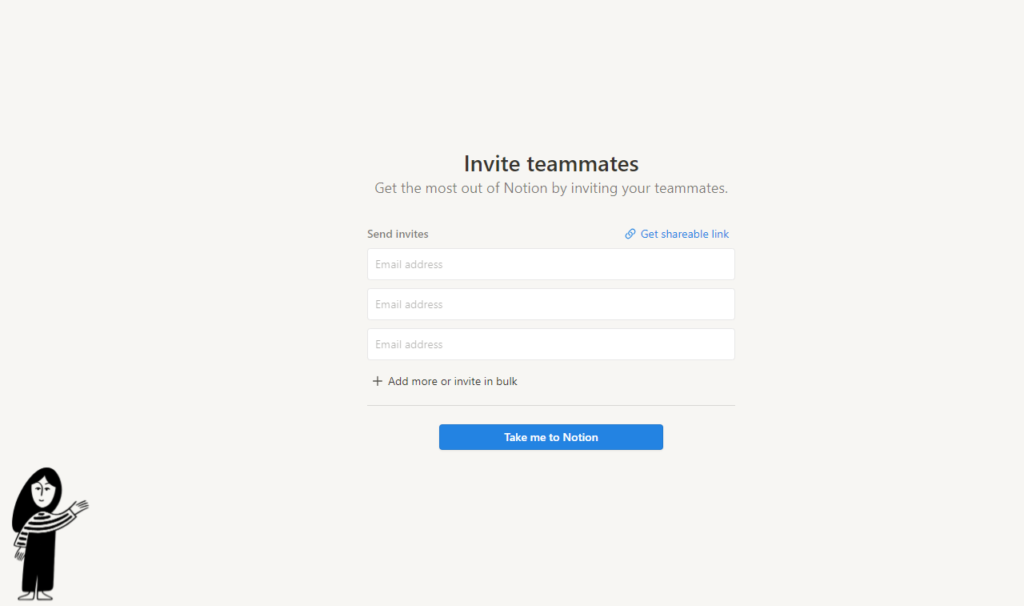
SuperReply: AI Email Responder for Gmail
SuperReply stands out for its AI-driven approach to managing email responses within Gmail. This tool integrates seamlessly with Gmail, using AI to automate and optimize email responses. SuperReply analyzes incoming emails and suggests suitable replies based on the content, context, and the user’s past response patterns. This feature is incredibly useful for professionals and individuals who handle a high volume of emails daily.
By reducing the time spent on crafting individual responses, SuperReply enables users to focus on more critical aspects of their work. The tool also offers customization options, allowing users to tailor the AI responses to their personal style and preferences, ensuring that the automated replies are both efficient and personalized.
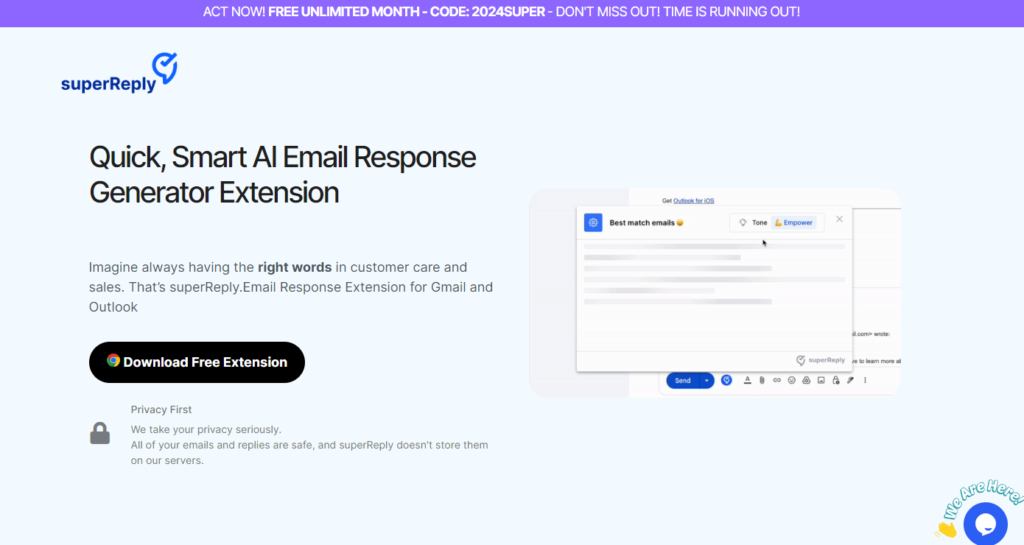
Nanonets: Automating Email Responses
Nanonets takes a specialized approach to automating email responses, focusing on streamlining and enhancing the efficiency of email communication. This tool utilizes advanced AI algorithms to understand the context and intent of incoming emails and generates appropriate responses.
One of the key features of Nanonets is its ability to learn and adapt to the user’s specific communication style, ensuring that the automated responses are not only relevant but also aligned with the user’s personal tone and manner of writing.
Additionally, Nanonets can integrate with various email platforms, making it a versatile tool for individuals and businesses alike. This automation of email responses significantly reduces the workload associated with managing emails, improving overall productivity and time management.
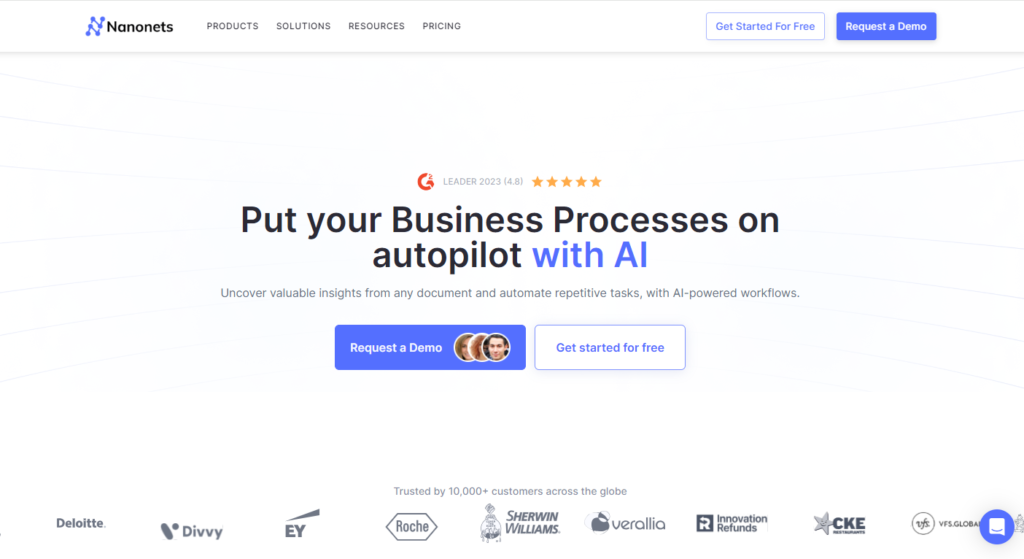
In conclusion, the integration of AI in productivity tools like Notion.so, SuperReply, and Nanonets has brought a new dimension of efficiency and intelligence to the digital workspace. These tools exemplify how AI can be used to automate routine tasks, provide intelligent assistance, and enhance user experience, thereby transforming the way we manage our daily tasks and communications. As AI continues to evolve, we can expect even more innovative integrations in productivity tools, further revolutionizing our digital interactions and workflows.
How AI Answer Generators Work
Understanding the inner workings of AI answer generators unveils a world where technology intersects with linguistics, creating tools capable of mimicking human-like interactions. The core of these advanced tools is Natural Language Processing (NLP), a branch of AI that plays a crucial role in enabling machines to interpret, understand, and respond to human language in a meaningful way. Let’s delve deeper into the technology behind these AI writing tools and the role of NLP.
The Technology Behind AI Writing Tools
AI writing tools are powered by a combination of machine learning algorithms and NLP. Machine learning allows these tools to learn from vast amounts of data, including various forms of written text available online. This learning process involves pattern recognition, where the AI identifies common structures, phrases, and styles in language usage. The more data the AI is exposed to, the more it learns and improves its ability to generate coherent and contextually appropriate responses.
The sophistication of these tools is evident in their ability to not only understand the literal meaning of words but also grasp nuances, idioms, and the subtleties of language. This capability stems from the AI’s deep learning components, which process and analyze layers of linguistic information, including syntax, semantics, and pragmatics. As a result, AI writing tools can produce responses that are not only grammatically correct but also stylistically aligned with the input they receive, and even creatively varied.
Understanding Natural Language Processing (NLP)
NLP is the technological backbone of AI answer generators. It involves a series of computational techniques that enable computers to process and understand human language. NLP combines computational linguistics — rule-based modeling of human language — with statistical, machine learning, and deep learning models. These models allow the AI to perform a variety of language-related tasks, such as language translation, sentiment analysis, and text summarization.
One of the key aspects of NLP is its ability to parse and understand the context. For instance, when a user inputs a sentence or question, NLP algorithms analyze the text to determine its intent and meaning. This analysis involves understanding the relationships between words, the significance of their order, and the nuances conveyed by different sentence structures. This contextual understanding is what allows AI writing tools to generate responses that are not only relevant to the input but also engaging and coherent.
In essence, the combination of machine learning and NLP in AI writing tools represents a significant advancement in our interaction with technology. These tools are no longer limited to simple, rule-based responses but are capable of engaging in complex conversations, understanding context, and even exhibiting creativity. As NLP and AI technologies continue to evolve, we can expect AI answer generators to become even more sophisticated, further blurring the lines between human and machine-generated communication.
In conclusion, the technology behind AI response generators, especially the role of NLP, is a fascinating blend of linguistics and AI. It’s this combination that enables these tools to generate responses that are remarkably human-like in their accuracy, relevance, and contextuality. As these technologies advance, the potential applications and capabilities of AI writing tools are bound to expand, further integrating into and enhancing various aspects of our digital lives.
Challenges and Limitations of AI Response Generators
AI answer generators, while innovative and powerful, are not without their challenges and limitations. Two of the most significant concerns in this field are the issues of accuracy and reliability, as well as the ethical considerations surrounding AI-assisted writing. These aspects are crucial to understand and address for the responsible and effective use of AI in writing and communication.
Addressing AI Accuracy and Reliability Issues
One of the primary challenges with AI answer generators is ensuring their accuracy and reliability. While these tools have made significant strides in understanding and replicating human language, they are not infallible. AI-generated responses can sometimes be inaccurate or irrelevant, especially when dealing with complex, nuanced, or highly specialized topics. This limitation often stems from the AI’s reliance on the data it has been trained on. If the training data is limited, biased, or of poor quality, the AI’s responses can reflect these flaws.
Moreover, AI tools may struggle with understanding context or intent, particularly in situations where the input is ambiguous or contains subtleties that are typically grasped only by human experience and intuition. This can lead to responses that, while technically correct, may miss the mark in terms of appropriateness or sensitivity.
To address these issues, ongoing refinement of AI algorithms is necessary, along with the use of more diverse and comprehensive training datasets. Additionally, there is a growing need for effective human-AI collaboration, where human oversight is used to review and refine AI-generated content, ensuring accuracy and appropriateness.
Ethical Considerations in AI-Assisted Writing

Another critical aspect of AI answer generators is the ethical considerations surrounding their use, particularly in the context of writing. Concerns include the originality and authenticity of AI-generated content. As AI tools become more adept at producing human-like text, the lines between AI-generated and human-generated content blur, raising questions about authorship and intellectual property.
There is also the concern of over-reliance on AI for content creation, potentially leading to a decrease in human creativity and critical thinking skills. As AI tools make it easier to generate content quickly, there is a risk that users might rely too heavily on these tools, foregoing the development of their writing abilities or critical analysis.
Furthermore, the use of AI in writing raises concerns about transparency. It is important for readers to know whether the content they are reading is AI-generated, especially in contexts where authenticity and human insight are crucial, such as in journalism, academic writing, or personal communications.
To navigate these ethical considerations, there is a need for clear guidelines and standards governing the use of AI in writing. This includes transparency about the use of AI-generated content, as well as ethical guidelines on how and when to use AI tools for content creation. It is also essential to foster a balanced approach that leverages the benefits of AI while still valuing and cultivating human creativity and insight.
In conclusion, while AI answer generators offer numerous benefits in terms of efficiency and capability, addressing their accuracy, reliability, and ethical implications is crucial. By acknowledging and working on these challenges and limitations, we can ensure that AI is used responsibly and effectively, augmenting human capabilities without undermining them.
AI Answer Generators in Business Applications
In business, AI answer generators play a crucial role. They streamline customer service, providing prompt and relevant responses to customer inquiries. Moreover, they have a significant impact on marketing and sales strategies, offering innovative ways to engage and convert potential customers.
Several companies have successfully implemented AI response generators to enhance their business operations and customer interactions. Here are some examples:
Ulta Beauty: The company used AI to implement automated personalization, aiming to use more personalization in its digital customer experiences.
IndiGo: This airline worked with the conversational AI company Yellow.AI to implement automated 24/7 customer support through a chatbot, offering self-serve options for customers and automating over 35 use cases with over 300 customer journeys.
Liberty London: Liberty London, a renowned department store, aimed to modernize its customer service to handle increased online sales, which constituted nearly 50% of their total sales. Their goal was to eliminate repetitive tasks and deliver a premium customer experience across various channels.
To achieve this, Liberty London collaborated with Zendesk, a San Francisco-based CX software company. They utilized Zendesk’s AI platform to classify and route customer support tickets efficiently. This AI integration enabled the store to effectively manage high-traffic customer service periods.
The AI system was designed to identify and label customer intent, sentiment, and language, ensuring that issues were routed and resolved swiftly. Additionally, there were plans to use the platform for managing backlog tickets to alleviate bottlenecks in customer service operations.
Ian Hunt, the director of customer services at Liberty London, highlighted the role of AI in enhancing personal service. He envisioned AI as a tool to provide customers with timely and relevant human interactions, armed with the right information. He also saw this as an opportunity for the team to focus on significant business projects, potentially driving revenue and exploring new sales channels.
The results of integrating AI into their customer service were significant:
There was an 11% decrease in ticket resolution time.
The time for first replies to customer queries dropped by 73%.
Customer satisfaction saw a 9% increase.
These case study exemplify how AI can be effectively used in customer service to enhance efficiency, improve response times, and increase customer satisfaction, all while allowing human agents to focus on more impactful aspects of the business.

Choosing the Right AI Answer Generator
Selecting the right AI answer generator for your needs involves a careful evaluation of various factors, including specific features, pricing, and how well the tool aligns with your goals and workflows. Let’s delve into the key considerations and offer a general comparison of features and pricing to guide you in making an informed decision.
Factors to Consider When Selecting a Tool
- Purpose and Use Case: Determine what you need the AI tool for. Is it for customer service, content creation, email responses, or another specific task? Different tools are optimized for different use cases.
- Features and Functionality: Look at the features each tool offers. Does it support multiple languages? Can it integrate with your existing software? Assess features like response accuracy, customization options, and ease of use.
- Learning Curve and User Interface: Consider the user experience. Is the tool easy to learn and use? A user-friendly interface can significantly impact productivity and user adoption.
- Integration Capabilities: If you’re using other digital tools or platforms, it’s important to choose an AI response generator that integrates seamlessly with them. This ensures a smoother workflow and reduces the hassle of juggling multiple platforms.
- Scalability: Think about the future. Will the tool be able to accommodate your growing needs? A scalable solution can evolve with your business or personal requirements.
- Support and Training: Good customer support and adequate training resources are essential, especially if you’re new to AI tools. Check the level of support and educational resources offered by the provider.
- Data Security and Privacy: Understand how the tool handles your data. It’s crucial to choose a platform that respects data privacy and adheres to security standards.
- Feedback and Reviews: Look for reviews and feedback from other users. Real-world experiences can provide valuable insights into the tool’s performance and reliability.
Comparison of Features and Pricing
Notion.so: Notion offers a free plan, which is quite generous and suitable for personal use. It includes features like unlimited pages and blocks and sharing with up to five guests.

Rytr: Rytr has a free version that allows users to generate a certain amount of characters per month. It’s useful for those who want to test its capabilities before committing to a paid plan.
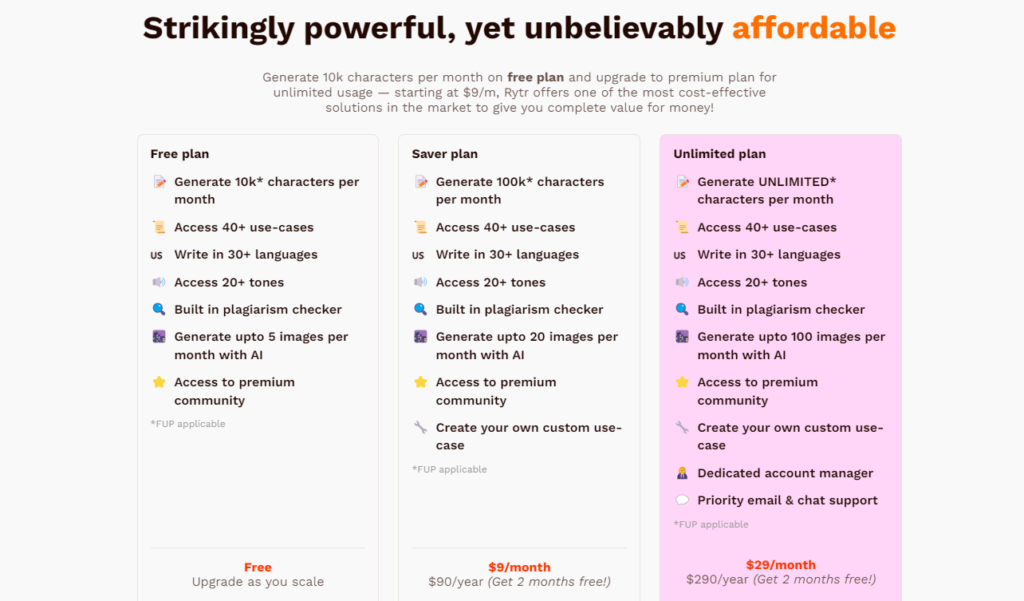
Coda.io: Coda provides a free plan with some basic features. It’s ideal for individuals or small teams starting out and looking to explore the tool’s capabilities.
Grammarly: While primarily a grammar and spell-check tool, Grammarly also offers some sentence rephrasing and tone suggestions in its free version.
OpenAI’s GPT-3: OpenAI occasionally provides limited free access to its API for testing and development purposes, but generally, GPT-3 usage is based on a pay-as-you-go model.
In conclusion, choosing the right AI response generator requires a careful consideration of your specific needs, the features offered, and the cost involved. By comparing these aspects across different tools, you can select an AI solution that best aligns with your objectives and offers the best value for your investment.
Integrating AI Response Tools with Other Software
The integration of AI answer generators with other software systems is a critical step in harnessing the full potential of AI in streamlining workflows and increasing productivity. By understanding and utilizing the compatibility and integration options available, businesses and individuals can create a synergy between AI tools and their existing software ecosystems. This integration can lead to more efficient processes, improved accuracy, and better decision-making.
Compatibility and Integration Options for AI Answer Generators
- APIs (Application Programming Interfaces): Many AI response tools offer APIs that allow for seamless integration with other software systems. These APIs enable different programs to communicate with each other, allowing AI tools to be incorporated into existing workflows, such as CRM systems, email platforms, or content management systems.
- Plug-ins and Add-ons: Some AI tools offer plug-ins or add-ons for popular software platforms. For instance, AI writing assistants might provide a plug-in for word processors or email clients, enabling users to access AI features directly within these applications.
- Cloud-based Integration: Many AI response tools are cloud-based, which facilitates integration with other cloud services. This can include storage services like Google Drive or Dropbox, or cloud-based business applications like Salesforce or Slack.
- Custom Integration Solutions: Larger organizations might opt for custom integration solutions, where AI tools are tailored to fit into their unique software environments. This often involves collaboration with the AI tool provider to develop a bespoke integration strategy.
Enhancing Workflow with AI and Software Synergy
- Automated Data Entry and Analysis: Integrating AI tools such as AI Answer Generators with data management software can automate data entry and analysis tasks. For example, AI can automatically input data from emails into a CRM system and analyze it for insights.
- Streamlined Communication: By integrating AI answer generators with communication tools like email clients or messaging platforms, responses can be automated or suggested, saving time and improving the consistency of communication.
- Enhanced Content Creation: For content creators, integrating AI writing assistants with content management systems or blogging platforms can streamline the writing process, from ideation to SEO optimization.
- Improved Customer Service: AI response tools integrated with customer service platforms can provide quicker and more accurate responses to customer inquiries, improving customer satisfaction and efficiency.
- Personalized Marketing Campaigns: AI tools such as AI Answer Generators, when integrated with marketing software, can analyze customer data and help tailor marketing messages, leading to more effective and personalized campaigns.
The integration of AI answer generators with other software not only maximizes the efficiency of these tools but also enhances the overall functionality of the existing software ecosystem. It creates a more cohesive and intelligent workflow, where routine tasks are automated, allowing human users to focus on more strategic and creative aspects of their work. As AI technology continues to evolve, the possibilities for integration and the benefits they bring are likely to expand even further.
As we’ve explored throughout this blog post, AI answer generators are not just futuristic concepts but are dynamic tools already reshaping the landscape of digital communication.
From ScribeHow’s ability to simplify complex queries to HyperWrite AI’s creative writing assistance and Rytr’s versatile response generation, these tools are revolutionizing the way we write, respond, and interact online. Their integration into various sectors, including customer service, content creation, and email communication, demonstrates their versatility and value.
The innovative features of tools like Coda.io, AI SEO, and AI Wizard’s Spellbook further highlight how AI can be ingeniously integrated into our digital tools, enhancing efficiency and opening up new possibilities for creative and practical applications. The evolution of AI in digital communication, driven by Natural Language Processing and machine learning, signifies a major leap in how we process and manage information.
However, it’s crucial to navigate the challenges and limitations of AI response generators, such as ensuring accuracy and reliability and addressing ethical considerations. By doing so, we can responsibly harness the benefits of AI while maintaining the integrity and creativity of human input.
Looking to the future, the role of AI in digital communication is only set to grow. As we continue to integrate these tools into our daily tasks and business operations, we’re likely to witness even greater innovations and efficiencies. The key to success lies in choosing the right AI response generator that aligns with our specific needs and seamlessly integrates with other software systems, enhancing our workflows and productivity.
In conclusion, AI answer generators are a testament to the incredible advancements in technology and their potential to enhance our digital experiences. By adopting these tools, we can streamline our communication, boost our creativity, and move confidently into an AI-driven future, all while ensuring that we remain at the forefront of this exciting digital revolution.

FAQs
What are AI Answer Generators?
AI Answer Generators are tools that use advanced algorithms and natural language processing to automatically generate responses to queries, emails, and messages. They are designed to provide quick, accurate, and contextually relevant replies across various digital platforms.
How do AI Answer Generators benefit businesses?
Businesses can benefit from AI Answer Generators through improved efficiency in customer service, enhanced content creation, streamlined email communication, and overall better management of digital interactions. These tools help in saving time, reducing manual workload, and improving customer engagement.
Can AI Answer Generators replace human interaction?
While AI Answer Generators significantly enhance efficiency and consistency in communication, they are not designed to completely replace human interaction. They serve as tools to assist and augment human capabilities, particularly in handling routine or repetitive tasks.
Are AI Answer Generators suitable for all types of businesses?
Yes, AI Answer Generators can be adapted to a wide range of business types and sizes. However, the choice of tool and its implementation should be based on the specific needs and context of the business.
How do AI Answer Generators understand and respond to different contexts?
AI Answer Generators use Natural Language Processing (NLP) and machine learning to understand the context and intent of the input they receive. They analyze patterns in language and learn from a vast array of textual data to generate relevant and appropriate responses.
What should I consider when choosing an AI Answer Generators for my business?
When choosing an AI Answer Generators, consider factors such as the specific needs of your business, the features and functionalities of the tool, ease of integration with your current systems, scalability, user interface, and pricing.
Are there any ethical considerations to keep in mind when using AI Answer Generators?
Yes, ethical considerations include ensuring the originality and authenticity of content, transparency about the use of AI-generated responses, and avoiding over-reliance on AI for creative and critical thinking tasks.
Can AI Answer Generators be integrated with other software and tools?
Many AI Answer Generators offer integration capabilities with other software and tools through APIs, plug-ins, and cloud-based integration options, allowing them to seamlessly fit into existing digital ecosystems.
How accurate and reliable are AI Answer Generators?
The accuracy and reliability of AI Answer Generators have improved significantly with advancements in AI and NLP. However, they may still require human oversight for complex, nuanced, or highly specialized tasks.
What is the future of AI in digital communication?
The future of AI in digital communication looks promising, with continuous advancements leading to more sophisticated and intuitive tools. AI is expected to play an increasingly integral role in automating and enhancing digital interactions, both in business and personal contexts.
How do AI Answer Generators handle privacy and data security? AI Answer Generators are designed with privacy and data security in mind, adhering to various data protection regulations like GDPR. These tools typically employ encryption and secure data handling practices to protect sensitive information.
However, it’s important for users to review the privacy policies of specific tools to understand how their data is being used and protected. Additionally, businesses should ensure that their use of AI Answer Generators complies with industry-specific data protection standards and customer privacy expectations.







Pingback: Is Chat GPT Plagiarism Free: The Truth Now-2024 - AI Profit Now